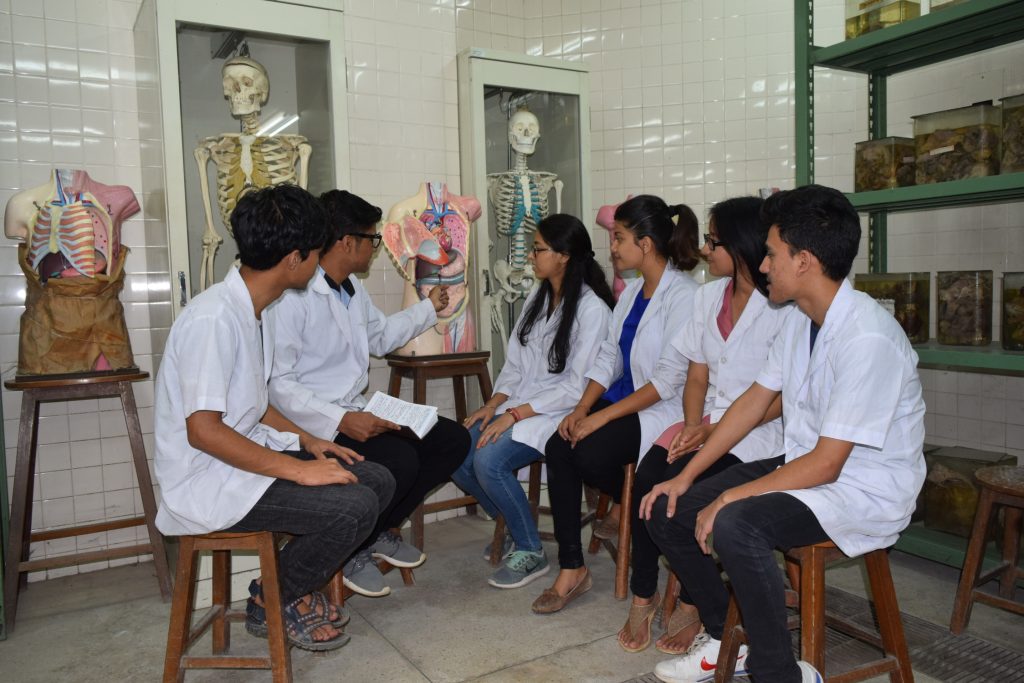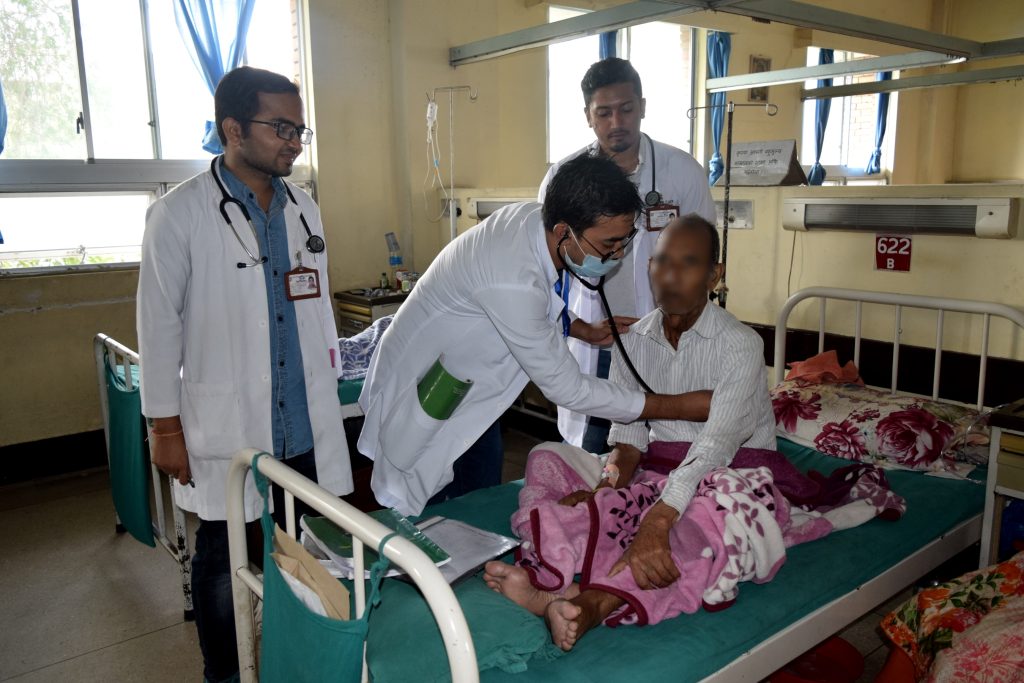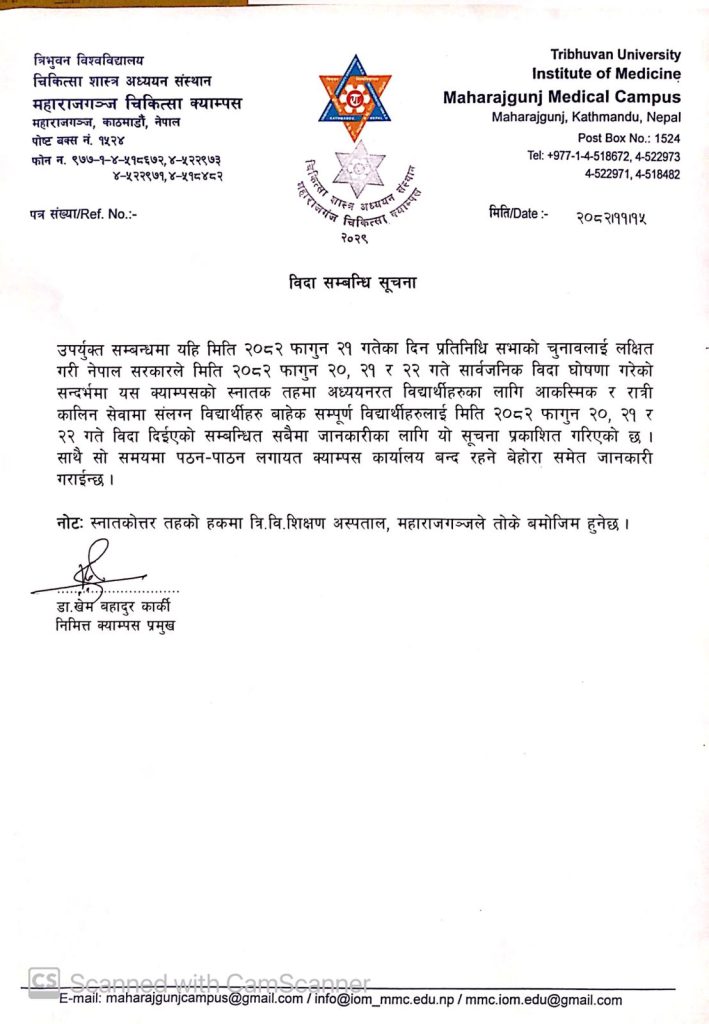Bachelor of Medicine and Bachelor of Surgery (MBBS)
Program description
The Bachelor of Medicine, Bachelor of Surgery program aims to produce socially responsible and competent medical doctors who are able to meet the existing and emerging challenges of national and international healthcare system. The course is unique in that it is a community oriented and partly community based program.


The course is unique in that it is a community oriented and partly community based program. It focuses on early exposure to community medicine and clinical subjects, follows an integrated approach in learning, includes problem based learning, and promotes self-directed learning. The course also focuses on medical ethics and information management.
The graduates of MBBS program will be able to take medical history; perform clinical examinations, diagnose various diseases and treat them, manage life-threatening medical emergencies; communicate with patients and their families; plan and manage preventive, promotive and rehabilitative health services and conduct research in health sector.

Learning outcomes:
- Take relevant medical history and perform clinical examination
- Apply principles of medicine into practice
- Demonstrate sound knowledge of structure and function of human body and their relation to health and disease
- Communicate with patients and their families, colleagues and members of health care team with respect, politeness and compassion
- Carry out professional responsibilities related to individual, family, community and society at large with concern and care.
- Manage life threatening medical emergencies.
- Manage health problems appropriately.
- Recognize clinical conditions that require referral, give initial treatment and refer to appropriate health care facilities.
- Recognize various biological and social determinants of health of an individual as well as the population.
- Plan and manage preventive, promotive and rehabilitative health problems.
- Function as a leader of the health care team.
- Identify and carry out necessary medico-legal procedures.
- Apply principles of medical ethics in the practice medical profession
- Continue to acquire new knowledge and skills by employing different methods of continuing professional development.
- Critically appraise scientific literature.
- Conduct research in health relevant to his or her area of work.
- Use medical informatics effectively.
Program duration:
5½ years
(4 ½ years medical school; followed by 1 year rotatory internship)
Program outline:
| MBBS Year 1 |
|---|
| 1. Anatomy |
| 2. Biochemistry |
| 3. Microbiology |
| 4. Pathology |
| 5. Pharmacology |
| 6. Physiology |
| 7. Community Medicine |
| 8. History Taking |
| 9. Communication Skills |
| MBBS Year 2 |
|---|
| 1. Anatomy |
| 2. Biochemistry |
| 3. Microbiology |
| 4. Pathology |
| 5. Pharmacology |
| 6. Physiology |
| 7. Clinical Examinations |
| 8. Communication Skills |
| MBBS Year 3 |
|---|
| 1. Internal medicine |
| 2. Surgery |
| 3. Pediatrics |
| 4. Forensic Medicine |
| 5. Community Medicine |
| MBBS Year 4 |
|---|
| 1. Internal Medicine |
| 2. Surgery |
| 3. Psychiatry |
| 4. Dermatology |
| 5. Ophthalmology |
| 6. Ear, Nose & Throat |
| 7. Orthopedics |
| 8. Dentistry |
| 9. Radiology |
| 10. Anesthesiology |
| 11. Emergency Medicine & Family Practice |
| 12. Community & Clinical Experience |
| 13. Field Management |
| MBBS Year 5 |
|---|
| Internal Medicine |
| Surgery |
| Gynaecology & Obstetrics |
| Paediatrics |
| Anaesthesiology |
| Radiology |
| Emergency Medicine & Family Practice |
| Information Technology |
| Ethics |
| Research |
| MBBS Internship |
|---|
| 1. Internal Medicine (Including Psychiatry and Dermatology) |
| 2. Surgery |
| 3. Orthopedics |
| 4. Gynecology & Obstetrics |
| 5. Pediatrics |
| 6. Emergency Medicine & Family Practice |
| 7. Ophthalmology |
| 8. Ear, Nose & Throat |
| 9. Anesthesiology |
| 10. Family Planning & Mother Child Health |

